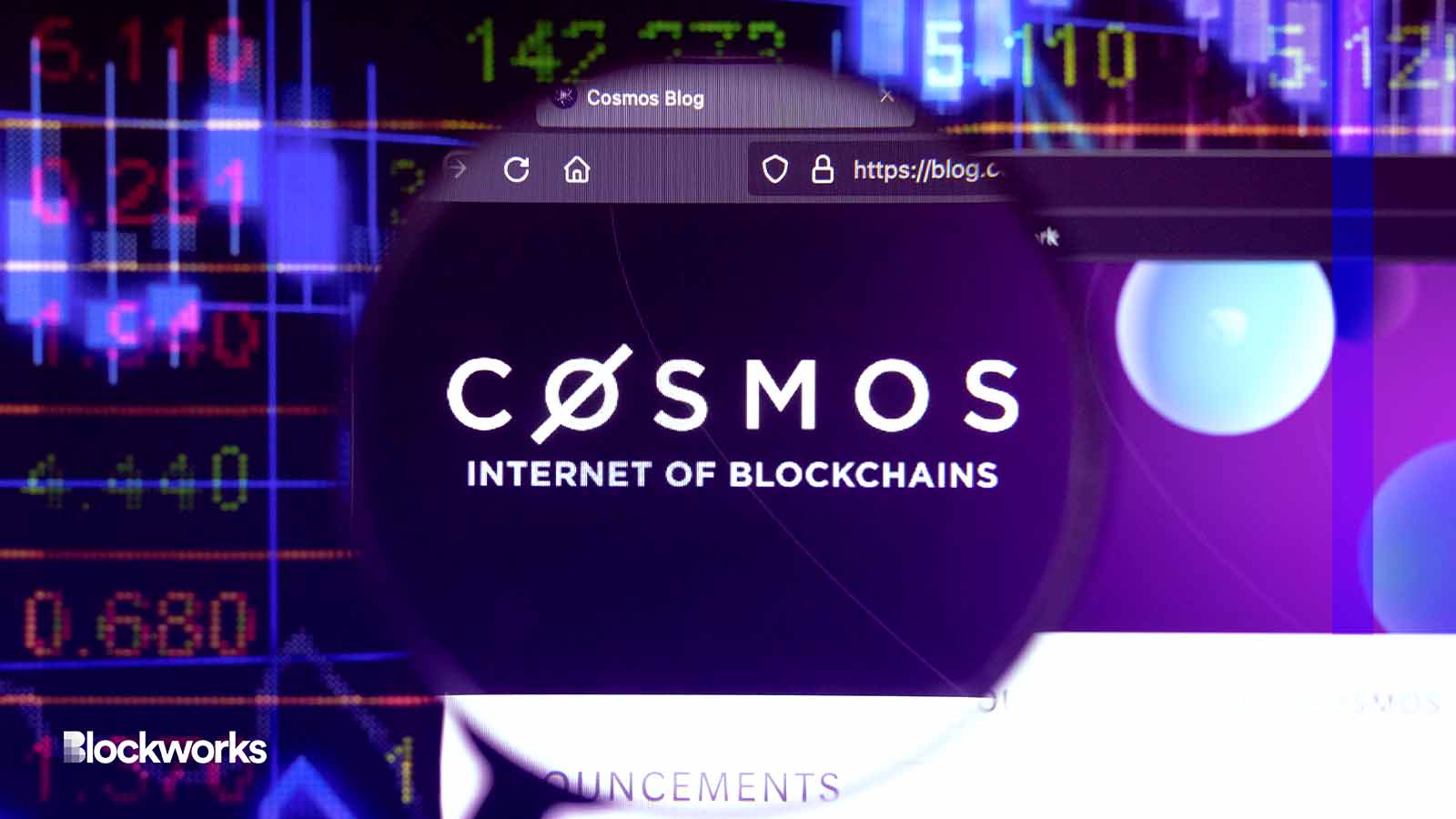Cosmos community split on how to deal with ‘accidental’ double-signing on consumer chain, Neutron
The controversy might harm the “value prop” of Replicated Security, Rodriguez says

Dennis Diatel/Shutterstoc k modified by Blockworks
The crypto space is never short on drama, particularly when it comes to issues around consensus. The latest bit of spicy controversy springs from a proposition to “slash” and “tombstone” two validators through a community vote in the Cosmos ecosystem.
The Neutron consumer chain, secured by Cosmos, recently experienced a “double-signing” event by two reportedly reputable validators. On the Cosmos chain itself, this would normally result in the automatic slashing of funds and a penalty called “tombstoning,” whereby the nodes are permanently banned from validating.
But since Neutron is a consumer chain secured by Cosmos via “Replicated Security,” the punishments must instead be doled out via an ongoing community vote called Prop #818, scheduled to end on Aug. 23. Blockworks Research Analyst, David Rodriguez speaks about the debate on the 0xResearch podcast (Spotify/Apple).
Rodriguez goes into further detail about the incident that sparked the controversy, previously explained to Blockworks. During a rolling upgrade of Neutron, validators were expected to upgrade to the latest version.
Rodriguez says that two validators appeared to have accidentally “double-signed” the block, meaning they submitted two signed messages for the same block — a big “no-no,” he says.
Being that the consumer chain is “very new tech,” Rodriguez says, penalties like slashing and tombstoning are not yet automated. “The concern was, what if a consumer chain accidentally slashed the validators when they didn’t do anything wrong?”
Instead, the Cosmos Hub communities must “decide whether or not a validator should be slashed,” he says.
Rodriguez says that it appears that neither of the validators exhibited malicious intent with the double-signing, but certain community members argue that whether or not the act was intentional, “code is law.”
Not worth the risk?
If a validator double-signed on the Cosmos Hub, “they would’ve been [automatically] slashed and tombstoned,” he says.
“Why aren’t we taking this exact same approach and setting the exact same precedent for consumer chains?” Rodriguez asks. “There’s a lot of validators right now that are looking at this and going, ‘Well, the risk-return for validating a consumer chain is not worth it.’”
“The validators don’t want to be penalized for unintentionally double-signing or doing something else negative to these consumer chains.”
“You’ve got to set a precedent here,” he says, “that these validators should be slashed — and maybe Neutron or the consumer chain should reimburse the validator.”
“We should vote after slashing and tombstoning these validators to un-tombstone them and bringing them back into the validator set,” he says. “It’s very important to set a social precedent.”
Ultimately, Rodriguez says, the incident might “put the value prop of replicated security and interchain security in harm’s way.”
A planned upgrade for automated slashing is in the works, Rodriguez notes, “but it’s just unfortunate that this event is happening while Replicated Security is on training wheels.”
Slash first, ask questions later
Blockworks Research analyst Ren Yu Kong adds, “I would always err to the side of slashing first.” He suggests that after a slashing, the community could follow up the incident with a veto committee that could potentially “undo that slash.”
“For these systems that largely depend on crypto economic security, you need to have that guarantee that the slashing is going to happen instantaneously or that it’s within the code.”
“You don’t have to slash and then immediately burn it,” he says. “You can move stuff to a community-owned wallet and then there’s a committee of some sort that votes on whether this slashing is vetoed or it goes through.”
“The hub took an optimistic approach,” Rodriguez replies, presuming that the validators were not acting nefariously. Giving the validators the benefit of the doubt and letting social consensus decide “was probably not the right thing to do, in hindsight,” he says.
It would have been better to “slash first, ask questions later,” Rodriguez says. “If these validators did this on the Cosmos Hub or if an Osmosis validator double-signed, they would’ve been slashed immediately.”
“I don’t know why we’re not extending those exact same rules that we already have in place — and what the precedent is for other Cosmos chains.”
“A lot of validators are concerned about whether or not they should even be validating Neutron moving forward, or another consumer chain,” Rodriguez says.
“The risk is, potentially, not worth it.”
Get the news in your inbox. Explore Blockworks newsletters:
- The Breakdown: Decoding crypto and the markets. Daily.
- 0xResearch: Alpha in your inbox. Think like an analyst.






